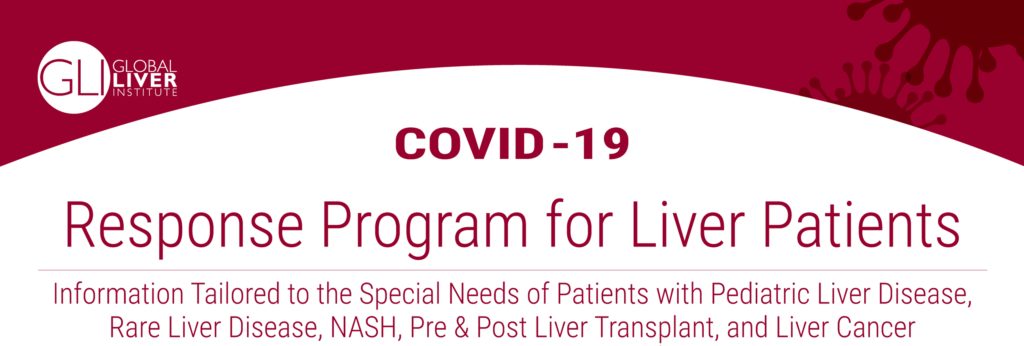
As more Americans have received at least one dose of a COVID-19 vaccine than have tested positive for the virus1, we are seeing some hope for defeating the pandemic with science. While different states are announcing their plans for vaccine distribution, you might be wondering how this could impact you as a liver transplant recipient. If you have received a liver transplant or are on the waiting list for one, you may also have questions about the safety and efficacy of the COVID-19 vaccines, as well as how you can sign up for vaccines locally. This COVID-19 update is dedicated to providing you with answers to those important questions.
First of all, where are we now in vaccine development?
1. Currently, there are two COVID-19 vaccines authorized for Emergency Use in the United States.
Emergency use authorization (EUA) does not mean that a vaccine is approved. It means that under the current public health emergency, vaccines are put into use before official licensure or approval. It also means that there are no adequate, approved, nor available alternatives to diagnose, treat, or prevent serious conditions such as coronavirus disease. Given the gravity of the COVID-19 pandemic, public health and medical professionals determined that the benefits of making some vaccines available outweighed potential risks based on existing evidence.
Among 66 vaccines that are undergoing human clinical trials globally, 20 have reached the final stages of testing and eight have been put into early or limited use2. Two vaccine candidates, Pfizer/BioNTech and Sinopharm, have gained official approval from some countries. The Pfizer/BioNTech mRNA vaccine developed by the US-Germany partnership has been approved by the Saudi Ministry of Health, Bahrain’s National Health Regulatory Authority (NHRA), and most recently the European Medicines Agency. The inactivated vaccine developed by Sinopharm, on the other hand, has been approved in China by the National Medical Products Administration, in U.A.E. by the Ministry of Health and Prevention, and in Bahrain by NHRA. You can check the real-time status of vaccine development on the New York Times vaccine tracker and vaccine delivery on the Bloomberg Vaccine Tracker.
2. Studies have shown that mRNA vaccines made by Pfizer/BioNTech and Moderna, among other types of vaccines, are safe and effective.
Vaccines can work via several mechanisms. Most COVID-19 vaccines are RNA vaccines, DNA vaccines, or inactivated vaccines. An RNA or DNA vaccine contains pieces of genetic materials of the virus that encode for proteins that are crucial for recognition, while an inactivated vaccine is made from weakened viral particles. Many scientists are hoping the relatively new technology of RNA vaccines to be a gamechanger in the COVID-19 vaccine development. This is because it usually takes months to collect, cultivate, and purify viral particles to make conventional vaccines, whereas RNA vaccines can be developed rather quickly using only the genetic information of the virus. It should be noted that neither RNA/DNA vaccines nor inactivated vaccines contain live viral materials, so there is also no potential risk of infection of COVID-19 by receiving vaccination.
Study results have shown that Pfizer/BioNTech, Moderna, and Oxford/AstraZeneca are all safe and highly effective vaccines3 4 5. Research has also shown that two doses of vaccine are significantly more protective against COVID-19 than a single dose. For example, the Oxford-AstraZeneca vaccine is shown to offer protection of 64.1% after at least one dose, which compares to 70.4% if two doses are given. Moderna vaccine, on the other hand, has been shown to provide 80.2% protection after one standard dose and 95.6% after two.
3. Liver transplant recipients, among persons with other liver conditions, have not been well represented in clinical trials of COVID-19 vaccines.
This might sound frustrating, and you are probably wondering why people like you are not included in vaccine trials. To test if a vaccine works, most initial trials recruit only healthy participants. Therefore, initial studies on COVID-19 vaccines did not include persons on immunosuppressive treatments or those with weakened immune systems. There is very limited data to assess vaccine safety and efficacy in liver transplant recipients. Promisingly, several research groups, including Washington University in St. Louis, have begun looking into how immunosuppressant medications might affect COVID-19 vaccine efficacy. Johns Hopkins Medicine has also launched a COVID-19 antibody testing of recipients of solid organ transplants study aiming to provide important vaccination guidance to transplant patients.
How safe and effective are COVID-19 vaccines in liver transplant recipients?
The Pfizer/BioNTech and Moderna mRNA vaccines have data in immunocompetent persons showing 94.1-95% efficacy in preventing COVID-19 infection. Vaccine efficacy appears similar in persons older than 65 years of age compared to those of younger age groups.
Currently, there is no research on the safety and efficacy of COVID-19 vaccines in liver transplant recipients. However, Centers for Disease Control and Prevention (CDC) and American Association for the Study of Liver Diseases (AASLD) both suggest that mRNA vaccines are most likely to be just as safe for you as the general population, although vaccine efficacy might be impacted by immunosuppressive medications.
Should I get vaccinated against COVID-19 as a liver transplant recipient?
Many medical authorities, including International Liver Transplantation Society (ILTS), British Transplantation Society (BTS), British Association for the Study of the Liver (BASL), and British Society of Gastroenterology (BSG), recommend liver transplant recipients to get vaccinated whenever available. In addition, other authorities, including American Society of Transplantation (AST) and Canadian Society of Transplantation (CST), recommend that all transplant candidates and their household members receive COVID-19 vaccines, and that transplant candidates should be targeted for vaccination while they are awaiting transplant. AST also recommends getting vaccinated more than two weeks prior to transplantation or one to six months post-transplant. Dr. Anthony Fauci, director of the National Institute of Allergy and Infectious Diseases, suggests all immunocompromised persons, such as transplant recipients, to get the COVID-19 vaccine.
In addition to the abovementioned recommendations, multiple studies show that transplant recipients seem to have worse clinical outcomes from COVID-19 infection compared to their non-transplant counterparts possibly due to comorbidities or immunosuppression. Therefore, it is believed that the benefits of getting COVID-19 vaccines outweigh any potential risks for transplant recipients6 7 8. In addition, AASLD has also recommended that liver transplant recipients should stay up-to-date on other routine vaccines, including the flu vaccine, to protect them from infections other than COVID-19. You can find a list of other information about COVID-19 important for liver transplant recipients and their families on the AASLD website.
When will vaccines be made available for liver transplant recipients?
On the federal level, CDC recommends what is called the “phased allocation.” Due to the limited availability of COVID-19 vaccines, state and local governments need to make decisions on which groups to prioritize and gradually expand the scope of vaccination through several phases. The top priority in the current phase, Phase 1a, is to vaccinate healthcare personnel and residents of long-term care facilities, such as those living in nursing homes and assisted living facilities. In the next phase, Phase 1b, vaccines will be made available for essential workers, including those in the educational sector, food and agriculture, transportation, and emergency services. In Phase 1c, adults with “high risk for severe COVID-19 due to underlying medical conditions” and those above the age of 65 will be vaccinated. Specific decisions regarding which groups will receive vaccinations first are made by state and local authorities. Transplant recipients may be considered as people with high-risk conditions and therefore included in groups for earlier vaccination.
At GLI, we are making efforts to ensure that liver patients, including liver transplant recipients, are prioritized in vaccine rollout, while trying not to pit one chronic health condition against the other. Details about the timing and availability of vaccines for liver transplant recipients are not available at this point, but you should frequently check updates on your state’s guideline for vaccine distribution. An exemplary state-by-state guide to check eligibility and sign up for vaccines can be found on The Wall Street Journal.
Are COVID-19 vaccines still effective for variants?
Viruses constantly change their genetic information through a process called mutation, and different variants of a virus are expected to emerge over time. Currently, multiple variants of the virus that causes COVID-19 are circulating globally, including those that emerged in the UK, South Africa, and Brazil. There is no evidence suggesting a potential for these variants to cause more severe illnesses or to increase the risk of death, but some professionals have suggested that higher infection rates of certain variants might be concerning particularly to vulnerable populations. Most vaccines, including Moderna and Pfizer, are shown to still be protective against variants despite slightly less potency.
Final Words
Navigating different medical recommendations on COVID-19 vaccines can be daunting, especially for a liver transplant recipient with limited information. It is always a good idea to discuss your individual circumstances with your healthcare professionals, especially the transplantation team, before getting your shots. Please also be aware that solid organ transplant recipients who intend to get the COVID-19 vaccine can enroll in a national observational study conducted by Johns Hopkins Medicine aiming to provide important vaccination guidance to transplant recipients. You can stay tuned for initial results from this study, which should be made available in February or March this year, or enroll as a participant on their website.
Sources
(1) “U.S. Hits Pandemic Milestone With More Vaccinated Than Cases.” Bloomberg.com. Bloomberg. Accessed February 3, 2021. https://www.bloomberg.com/news/articles/2021-02-01/u-s-hits-milestone-in-pandemic-with-more-vaccinated-than-cases.
(2) Zimmer, Carl, Jonathan Corum, and Sui-lee Wee. “Coronavirus Vaccine Tracker.” The New York Times. The New York Times, June 10, 2020. https://www.nytimes.com/interactive/2020/science/coronavirus-vaccine-tracker.html.
(3) Oliver S, Gargano J, Marin M, et al. The Advisory Committee on Immunization Practices’ Interim Recommendation for Use of Pfizer-BioNTech COVID-19 Vaccine — United States, December 2020. MMWR Morb Mortal Wkly Rep 2020;69:1922-1924. DOI: http://dx.doi.org/10.15585/mmwr.mm6950e2
(4) Oliver S, Gargano J, Marin M, et al. The Advisory Committee on Immunization Practices’ Interim Recommendation for Use of Moderna COVID-19 Vaccine — United States, December 2020. MMWR Morb Mortal Wkly Rep 2021;69:1653-1656. DOI: http://dx.doi.org/10.15585/mmwr.mm695152e1
(5) Voysey M, Clemens SAC, Madhi SA, et al. Safety and efficacy of the ChAdOx1 nCoV-19 vaccine (AZD1222) against SARS-CoV-2: an interim analysis of four randomised controlled trials in Brazil, South Africa, and the UK [published correction appears in Lancet. 2021 Jan 9;397(10269):98]. Lancet. 2021;397(10269):99-111. doi:10.1016/S0140-6736(20)32661-1
(6) “COVID-19 Vaccines for Transplant Patients.” University of Iowa Hospitals & Clinics, December 22, 2020. Accessed February 2, 2021. https://uihc.org/health-topics/covid-19-vaccines-transplant-patients.
(7) “National Transplant Consensus Guidance on COVID-19 Vaccines.” Canadian Society of Transplantation, December 18, 2020. Accessed February 2, 2021.
(8) “Coronavirus (Covid-19) Vaccine: Information and Updates.” Froedtert & the Medical College of Wisconsin. Accessed February 2, 2021. https://www.froedtert.com/covid-19-vaccine-updates/transplant.


